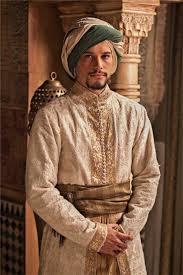Imagine bearing the blame for the downfall of your kingdom and people, and the loss of a legacy that had lasted for more than seven centuries. Dismissed throughout history as a weak-willed impostor on the throne. A burden well-understood by my second protagonist in Sultana: The White Mountains.
His Spanish contemporaries rendered this historical figure’s given name as Boabdil. I suppose it was an easier morsel to handle rather than the mouthful, Abu Abdallah Muhammad ibn Abu'l-Hasan Ali. His enemies also referred to him derisively as “El Rey Chico” for the boy king. Muhammad would acquire other names and titles throughout his lifetime, the most important as Sultan Muhammad XI of Granada, and the most unfortunate being “El Zogoibi” meaning the Unlucky. Two more recent depictions of him onscreen include the Spanish series, Isabel, and the fantasy film Assassin's Creed.
A direct descendant of the first Sultan Muhammad of the Nasrid Dynasty, the exact date of my protagonist’s birth remains uncertain. I’ve seen references to him as being born in as late as 1464 or as early as 1459. He entered the world certainly sometime after August 1455. That’s the period in which Muhammad’s eventual mother, Sultana Aisha, the daughter and betrothed or bride of other men named Muhammad would have endured the murder of the man she had been with and a subsequent marriage to his captor, their cousin the prince Abu’l-Hasan Ali.
The circumstances and consequences of this union caused future discord in my preceding novel Sultana: The Pomegranate Tree, as I reasoned, no woman could have truly loved a killer. Even if she would eventually bear him two sons, Muhammad and Yusuf, and a daughter named after her mother. The Nasrids have a well-deserved reputation for cruelty and they became best known for brutality against their family members. History and legend presume that Sultana Aisha had a strong influence over her son Muhammad’s rebellion against his father Sultan Abu’l-Hasan Ali in the summer of 1482. But not for the reason mentioned above.
The ruler had a second wife, a former Christian slave Isabel de Solis, who took the name Soraya and bore two sons. Chroniclers supposed some rivalry between the Sultanas fostered upheaval, but I’m inclined to believe the seeds of revolt grew years beforehand in the Sultan’s first marriage. Had he not made his first bride suffer the capture of his rival for her heart, the fate of Moorish Spain and their son Muhammad might have been different.
Unfortunately, Muhammad didn’t hold the throne for a lengthy period, a common enough occurrence with earlier Sultans. He came to power not long after Spanish Christians had consolidated their majority control over the Iberian Peninsula in the joint reign of King Ferdinand of Aragón and Queen Isabella of Castile. This formidable couple had one purpose, the demise of Moorish Spain and the union of Spain under one religion. They exploited the chaos within the Nasrid family.
History rarely provides details about motives. That’s where I believe historical fiction serves its best function. Sultana: The White Mountains explores much of what I believe were more tangible interests the Catholic Monarchs held. Muslim Granada had long subsisted on gold mined in Mali. If Isabella and Ferdinand could bankrupt the Nasrid Sultanate through endless warfare and the demands of tribute, they might hasten the end of Muhammad and his people. I’m not giving anything away by remarking on their success; Spain has been a Catholic country for five centuries. Find out how such a change resulted in the last novel of my Sultana series, available now.
How does my protagonist differ from the historical figure of Muhammad XI? Long before I started writing about him, I went in search of the real Muhammad, the man behind the legends and tainted history the victors had written. More than the purported puppet of the Christians who had seemingly betrayed his people. I discovered a complex man at a difficult period in history, the perfect inspiration for a tragic hero.
And despite his reputation, Muhammad is a hero in my view. He bargained and delayed, but I also discovered he stimulated a fierce insurgency against his enemies, within and outside his family and the kingdom. Although he made some foolish mistakes, he can no longer appear as just an ineffectual ruler under the thumb of his politically savvy mother. He also adored his family, especially his bride Moraima, as depicted by the two figures above placed outside Alcazar Genil in Granada. I discussed Moraima in the preceding post. So, I imbued my protagonist with all the traits of a proud, noble but flawed figure. In doing so, I also hope I did justice to the real Muhammad.
If you've missed any of the Meet the characters posts about this novel, find them HERE.
If you've missed any of the Meet the characters posts about this novel, find them HERE.







2 comments:
"Muslim Granada had long subsisted on gold mined in Mali."
Thanks for this data!
And of course, thanks for your huge work of love towards the Nasrid world to shed much light on part of the secrets they still keep
You're so welcome, Nathalie! Thank you so much for your enthusiasm for the period and the story. While the Moors had panned for gold in the Darro River over the centuries, the amounts necessitated for tribute meant more sources had to be found and one has been identified as Mali.
Post a Comment